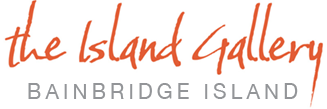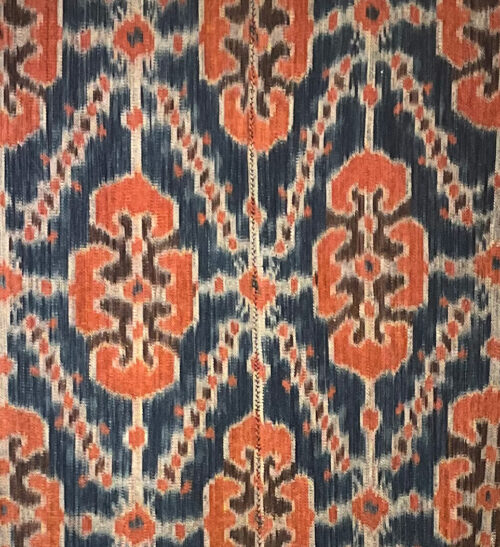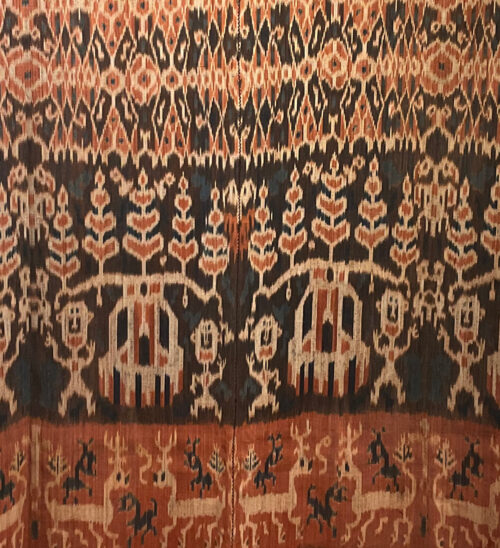-
The Men's Hinggi Ikat has a repeating geometric patola ratu motif, based on eight-rayed flower pattern from the Indian silk patola cloths traded in the 16th and 17th centuries by the Dutch to Sumbanese kings. Another motif on this ikat is the feline mahan, representing a lion or tiger, and symbolic of power and courage. These patterns are traditionally associated with Sumbanese royalty and continue to be used in ceremonial textiles for funerals, weddings, and in dowries. These textiles confer magical qualities to those who wear or display them and represent personal wealth. The Men’s Hinggi warp ikat is hand dyed and woven on Sumba Island, Indonesia. This ikat is wonderful exhibited as a wall hanging.
-
The Indigo Ikat has a repeating geometric patola ratu motif, based on eight-rayed flower pattern from the Indian silk patola cloths traded in the 16th and 17th centuries by the Dutch to Sumbanese kings. This pattern is traditionally associated with Sumbanese royalty and continues to be used in ceremonial textiles for funerals and weddings and in dowries. These textiles confer magical qualities to those who wear or display them and represent personal wealth.
Another motif is the walamangata tree from which ropes and fishing lines are made, and important to the Sumbanese economy. The Sumbanese interpret the walamangata tree as the Tree of Life; staying close to and guarding the king who will in turn be their source of wealth and food. A third motif is the ruha or deer, representing the king. The hunting of deer was reserved for royalty and the deer motif was retained for textiles of the royal court: the larger the deer’s antlers the higher the wearer’s position.
The Men’s Hinggi warp ikat is hand dyed and woven in the Kembera district, Sumba Island, Indonesia, c. 1980. This ikat is wonderful exhibited as a wall hanging.



